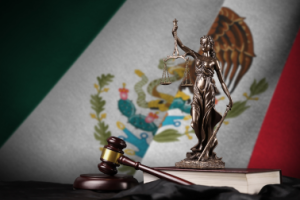Animal Welfare Prevails in Much-Anticipated United States Supreme Court Case
Introduction
On 11 May 2023, the U.S. Supreme Court released its opinion in the case of the National Pork Producers Council et al. v. Ross (No. 21-468). This case involves a challenge to a California law known as Proposition 12, a ballot initiative adopted in 2018, by 63% of California voters. While Prop 12 dealt with a number of animal welfare issues, the relevant one here forbids the in-state sale of pork meat that comes from breeding pigs that are “confined in a cruel manner.” Confinement is “cruel” if it prevents a pig from “lying down, standing up, fully extending [its] limbs, or turning around freely.” For the pigs this has been specifically defined as requiring access to at least 24 square ft of space per pig. Industrial standards previously accepted 12 square feet per pig. By the language of the law the requirement was imposed upon producers within the state, and more importantly producers outside the state who wished to sell pork within California.
Producers outside the state raised serious objections. They argued first that California had no right to impose welfare rules on operations outside the state, and second that the financial burden to comply with the standards was a substantial interference with interstate commerce. Shortly after Proposition 12’s adoption, two organizations, the National Pork Producers Council and the American Farm Bureau Federation brought a lawsuit on behalf of their members who raise and process pigs alleging that Proposition 12 violates the U. S. Constitution by impermissibly burdening interstate commerce. The District Court and Ninth Circuit Court of Appeals dismissed the suit stating that the plaintiffs had not shown a sufficiently high burden upon interstate commerce. In a split opinion the Supreme Court upheld the 9th Circuit dismissal of the case, thus allowing California to proceed with enforcement of the law against out-of-state pork producers. This opinion will have far-reaching consequences within the US industrial farm animal welfare, as well as internationally.
First a reminder that there is no real law at the national level in the United States that sets animal welfare standards for farm animals. The federal Animal Welfare Act does cover animals in research, testing and exhibitions, but farm animals are specifically excluded from the definition of animal. Historically the national farm animal producer organizations have lobbied hard to preclude national standards.
With no national law on the topic, each state has the inherent power to provide for the welfare of animals. Fifty different legislatures have a voice in the animal conditions for their states. There is no debate about the ability of a state to establish the living conditions for any farm animal within its boundaries. For example, recently a number of states have declared that egg-laying chickens should be cage-free after a phase-in period, thus eliminating the battery cage system which was dominant for decades within the industry. The EU also aims to end the practice by 2027. Most states have not yet adopted such a rule. So, the quality of life for egg-laying chickens depends on the state in which they reside.
The political power of the meat producer lobby at the state legislative level was strong enough to manage to defeat any attempts toward welfare improvement by new laws and regulations. That was true for decades but beginning twenty years ago animal welfare organizations sought new laws by going directly to the citizens by the ballot initiative path, thus bypassing the legislative branch.
Initially the ballot initiative approach resulted in better living conditions for animals within a number of states. But California Proposition 12 in 2018 took an additional step that impacted animals outside of California. The focus of that law was on meat and egg products sold within California whether the animals were raised in the state or out of state. The same welfare standards were required for anyone selling a meat product in California. As most meat consumed in California is raised out of state, in Iowa for instance, the financial impact of upgrading facilities for the animals falls upon out-of-state producers and Iowa’s legislature has no way to block California’s law. There is no denial of the fact that compliance will require substantial changes with unknown financial impact on existing producers. Maine and other states have also started to use the focus of “meat sold” for imposing animal welfare requirements.
Legal Context
The Constitution, in Art. I, § 8, cl. 3, delegated to the federal government the authority to regulate interstate commerce. In the absence of national rules states may adopt their own laws and regulations. The Supreme Court has decided in a series of cases over the past 50 years that the Court will strike down any state law which seeks to control commerce in another state or give preference to domestic commerce. However, California Prop 12 does not mandate any welfare condition on out-of-state producers, it is voluntary. Additionally, the same rules apply to instate and out-of-state producers. All parties agreed that the Commerce Clause is not directly violated. However, there is still the concept of the “dormant commerce clause.”
If a state law imposes a burden on interstate commerce, then the question is does the regulation meet the Pike test? A state statute that “regulates even-handedly” must be upheld by the Supreme Court “unless the burden imposed on [interstate] commerce is clearly excessive in relation to the putative local benefits.” In a prior case, the Supreme Court did acknowledge that a state does have the right to protect against cruelty to animals. The present case should require a balancing test between the ethical position of the citizens of California and the economic losses of those the plaintiffs represent. This is representative of so many animal issues, how to weigh an ethical position versus an economic consequence in a political context.
The Opinion
By a 5-4 opinion the lower court dismissal of the case was upheld. There was a splintering of opinions on both the majority and dissent sides of the case. Part of the majority said that the petitioners were trying to extend the Pike case into areas that were not within the jurisdiction of the Court. Others agreed with the lower court that there was no substantial burden on interstate commerce and therefore the Pike test was not triggered. Some on the dissent side thought that there might be a substantial burden and wanted to refer the case back to the lower court for a factual determination of the burden and how the balancing test would come out. One justice held that there was a burden on interstate commerce and that the burden was not justified by the benefit of better welfare for the animals, and therefore that the law should be struck down. After reading this opinion it is difficult to find a new rule or test that might be used to judge other state laws.
A prime difficulty, or disappointment of the case is that the court did not have anything to say about the strength of a state’s interest in protecting animal welfare Much of the discussion was around the issue of the “burden” imposed on the pork producers, but no test was suggested to clarify the definition of burden. It seemed more like personal opinions of the Justices. Therefore, more cases will most likely be filed in the future to deal with this important topic.
The Future
National considerations. This author is predicting that a number of coastal states will extend this court win by adopting new laws impacting the producing states. It is not likely that these state laws will be identical. Therefore in a few years there may be as many as a dozen different standards that meat producers will have to meet in order to sell their products in these various states. This will in turn become an incentive for the creation of national standards. However, predicting the outcome of such national legislation is not possible, so it is unclear if the national legislation will actually improve the welfare of farm animals. Once adopted at the national level it will preempt state laws (unless the federal law specifically allows more protective measures at the state level).
Beyond animal welfare, there exists the possibility that this approach by one state could be used to impose environmental or labor standards on out-of-state producers. For example, will California require the producers of any product sold in the state to conform to their labor laws? Or perhaps require out-of-state producers to possess a sustainability certificate issued by their agency? It seems that this case has opened a door to a large number of possibilities.
International Considerations. The California requirement will apply to meat produced outside the United States. This could raise an issue under the World Trade Organization provision which suggests that a country cannot restrict trade based on methods of production. However, the European Union case on seal products also suggests that when an importing state restriction is based upon a strong ethical position within the restricting country then restrictions on production methods might be allowed.
By David Favre,
Michigan State University
United States
2. Cal. Health & Safety Code Ann. §25990(b)(2).
3. §25991(e)(1) 4.https://www.bbc.com/news/world-europe-57668658.
5. Pike v. Bruce Church, Inc., 397 U.S. 137, 142 (1970). 6. United States v. Stevens, 559 U.S. 460, 469 (2010). 7. See https://www.wto.org/english/tratop_e/dispu_e/cases_e/ds401_e.htm.) There is no animal welfare treaty directly on the topic, but a treaty has been proposed which would touch upon the topic of industrial farm animal welfare. (See, https://www.conventiononanimalprotection.org/the-cap-treaty.






